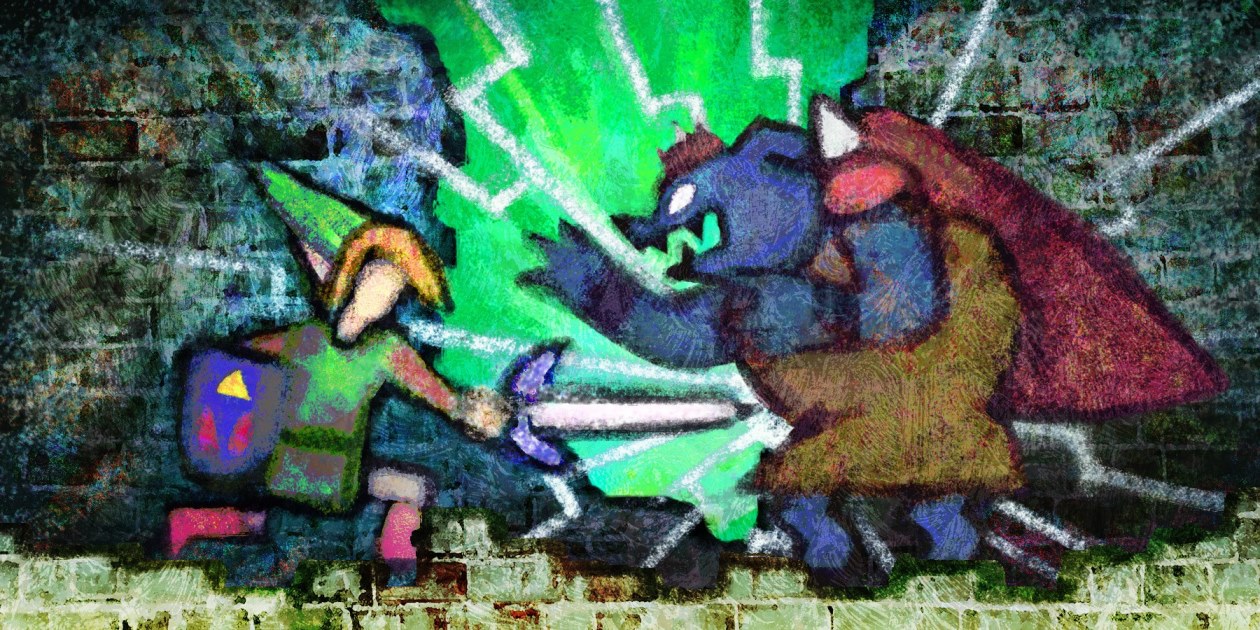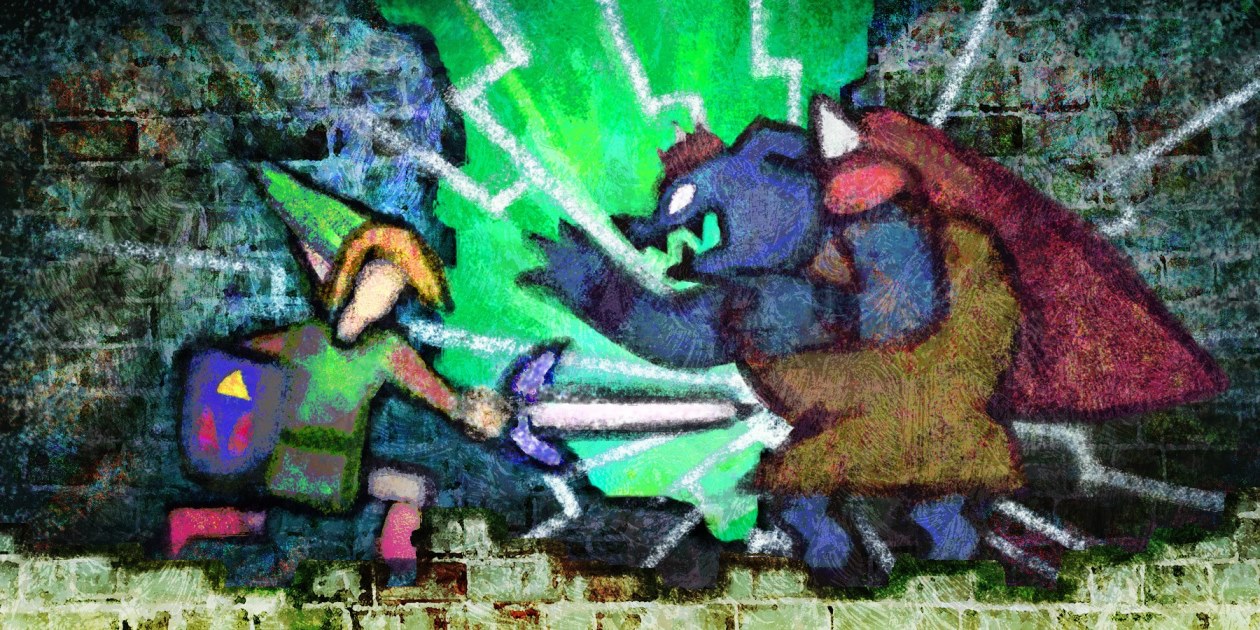I finished playing A Link Between Worlds this morning. It’s a beautifully crafted installment in one of my favorite franchises. I tore through it. I enjoyed every moment. I also don’t remember much of it.
Spoilers…
I want to celebrate ALBW as a masterpiece. It does so much right. I won’t rehash the glowing reviews except to say that the level of polish is astounding, even for a Nintendo game. The more disturbing then, that I found it unmemorable. Why?
- Is it too formulaic? I’ve never sympathized with this complaint before. ALBW strikes a balance of tribute and trailblazer, but perhaps like Star Trek Into Darkness the tribute part has impeded the “surprise and delight” of the thing. The memorable experience of exploring Hyrule’s new shape in each installment is here traded for the nostalgia of revisiting Link to the Past‘s terrain.
- Does it require headphones? I should admit that I played most of the game without audio, which might make it less memorable. It’s a bad habit I’ve developed in response to the demands of adult life, where game time occurs in stolen moments, attentive to my surroundings, always ready to drop play for some request. I’m always grateful to the sleep switch for this reason, but it doesn’t do my experience any favors.
- Is it too easy? Or have I outgrown Zelda? My avatar fell in combat just once over the course of his adventure, even through optional challenges. In what Mike Fahey called “the thinking person’s Zelda game,” no puzzle took me more than ten minutes to solve, most requiring mere seconds of thought. Without going too far out of my way I acquired all the optional dungeon items, all 100 Maimais, ended the game at the maximum 9999 rupees and only missed 3 heart pieces.
I’m not sure any of these are faults. But they are reasons why this beautiful little gem of a game is not going to stick with me like a half-dozen other Zelda games have.
I think that last reason is the most interesting. My most vivid Zelda memories are all associated with being lost, stuck, defeated, or otherwise forced to revisit a particular moment over and over again. Naturally, my first Zelda game Link’s Awakening holds the honor of a majority of these difficult and memorable moments.
- Unable to pass that stupid raccoon in the woods.
- The tough fight with the genie at the end of Bottle Grotto.
- The longest item-trading sequence ever.
- Solving Eagle’s Tower.
- The marathon fight with the nightmare.
Each of these individually represented days (if not weeks) of my time with LA. I revisited the characters and spaces more times than I can count. I inhabited the world, viewing it from every angle, frequently at a loss for what to do next but always sure that there was some nook I had missed. I became a pro at the screen-warp glitch and spent hours finding new ways to cross the world.
I’m not seven anymore, and I don’t expect to be challenged by each new Zelda like I was back then. But in a sense, that difficulty forced me to make repeat readings of the game, a little at a time, until I knew it inside and out. That’s what I feel missing now with ALBW – as I breezed through the game I only had to evaluate each space a few times, and never developed an imprint of it like LA inspired. And I don’t feel like I missed much. This is probably nostalgia speaking, but with older Zelda games I felt like the repeat playing kept uncovering more and more little details and layers, like a great book or movie. I’m not sure ALBW will.
I could replay ALBW and it would become more memorable to me. It strikes me, however, that one of the strengths of games is their use of challenge to force this kind of micro-re-reading within the expected duration of play. Some games are difficult enough to make the player retry a section many times. Some games are open-ended enough that the player must know the world deeply in order to figure out where to go next. Even better, multiple playings are fundamental to the structure of some games – Space Invaders, Smash Bros. and Spelunky all share this silent contract with the player that says “I am rich and deep and will not reveal all my secrets on your first or tenth or even hundredth play. You must re-read me again and again to know me.” In this intimacy memories are forged and hardened and the work becomes alive in the reader.
Beautiful as it is, A Link Between Worlds is fading fast.

